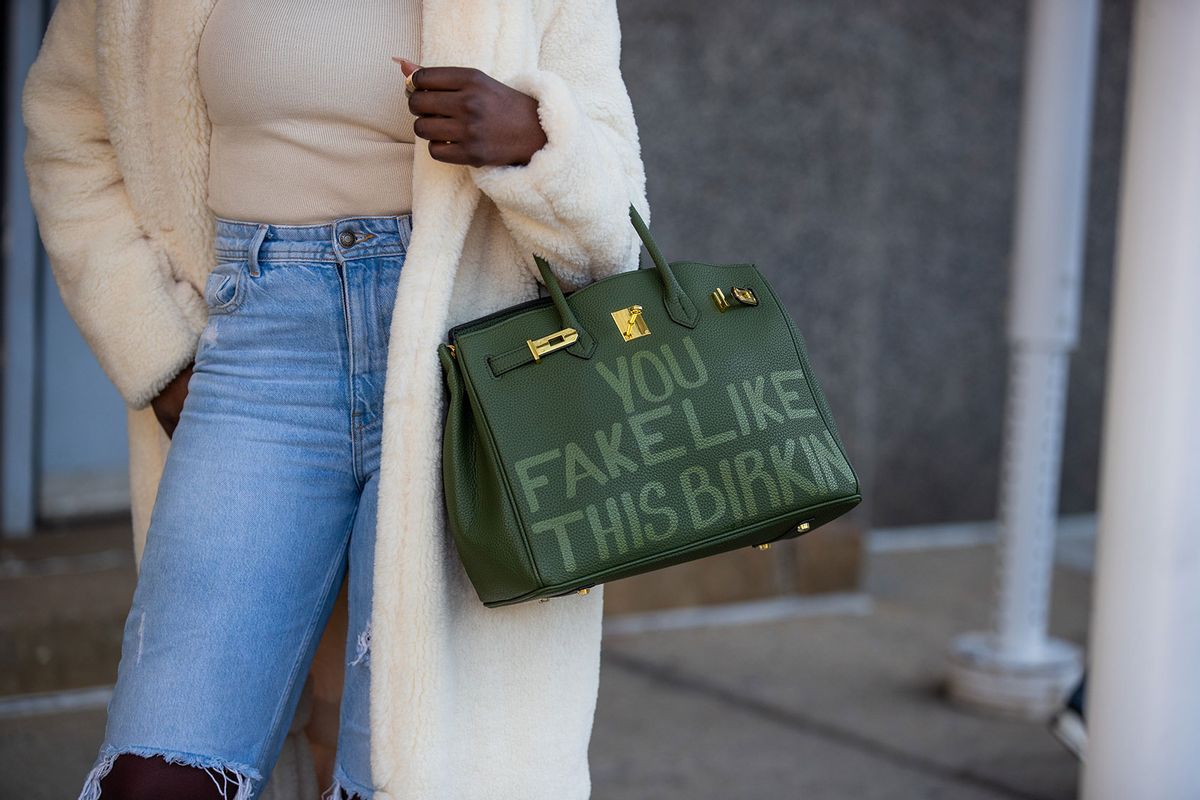Within the realm of MoneyTok — financial content on TikTok — a popular trend is the "dupe economy." As the phrase implies, it's a shopping phenomenon in which young consumers buy knock-offs or less expensive versions of designer brands.
From cosmetics to athleisure to designer handbags, Gen Z is proudly donning $40 handbags that would typically cost $500, or an $8 foundation that shares comparable ingredients to its $80 premium counterparts. Walmart's lookalike version of the luxury Hermès Birkin bag sold out after going viral on TikTok. The "Wirkin" costs between $60 and $100, compared to the Birkin's starting price tag of $10,000.
The dupe economy is so prevailing that TikTok videos with the #dupe hashtag had racked up nearly 6 billion views as of fall 2023.
While knock-offs of designer brands aren't new, the dupe economy is about embracing saving money through buying cheaper versions. No longer does someone need to feel sheepish about getting a less expensive imitation. According to some TikTok influencers, dupes may be comparable in quality and made of the same materials or ingredients as the pricier versions.
Surge in dupe culture
What's driving dupe culture? For one, younger consumers such as Gen Z are experiencing a deep sense of financial anxiety. According to a recent Ernst Young report, less than a third of Gen Z (31%) feel financially secure. Further, more than half (52%) are very or extremely worried about not having enough money.
Louis Guajardo, a certified financial planner at Moonshot Planning, said Gen Zers feel they're falling behind where their parents were at the same age. Food prices have increased 28% since 2019, outpacing inflation, and student loan debt continues to mount. Per Pew Research, 25% of adults ages 18 to 39 carry student debt, and the median load varied between $20,000 and $24,999 in 2023.
We need your help to stay independent
"With less disposable income and growing financial pressure, Gen Z has embraced online trends focused on finding bargains and duplicates of expensive products as a way to cope with their economic reality," Guajardo said.
The dupe economy is also fueled by several drivers rooted in TikTok's algorithm. The algorithm prioritizes engagement over follower count, said Gary Wilcox, a professor in communication in the Stan Richards School of Advertising and Public Relations at the University of Texas at Austin. Using a short, visually engaging format allows even small creators to spread trends like dupe discoveries to large audiences."
Propelled by the TikTok algorithm
Another factor? Rather than traditional celebrity endorsements, the authenticity of peer recommendations and TikTok's trend-driven nature can make trends like the dupe economy gain traction quickly.
"Gen Z has embraced online trends focused on finding bargains and duplicates of expensive products as a way to cope with their economic reality"
"The platform also thrives on simplistic visual comparisons, allowing users to see side-by-side demonstrations of how cheaper products can outperform more expensive ones," Wilcox said. "Social evidence or proof, in the form of user-generated content and glowing reviews, accelerates the spread of the dupe economy, creating a cycle where participants feel empowered to seek out and share high-quality, less-expensive products."
Making the most of the dupe economy
Saving money through engaging in the dupe economy can be a great way to return more money to one's wallet. Here are a few ways Gen Z can make the most of their cost-saving ways:
Budget. If you don't already have one, creating a spending plan using the money you potentially saved so you can stretch your money further. Having a clearer idea of your cash flow lets you be more intentional with your spending. This can help you make steady progress toward your financial goals.
Set up an emergency fund. Ideally, you'll want to set aside anywhere from three to six months of basic living expenses. By living within your means, you can save for an emergency more easily.
Contribute to tax-advantaged accounts. Another way you can use "extra money," or any money you have left over after living expenses, debt and emergency savings, is to contribute to a Roth IRA or employer-sponsored 401(k)s, Guajardo said.
"Most people can agree on one thing: they would like to pay less in taxes," he said. "Utilizing these tax-advantaged accounts is a great way of doing this. Not only can it help minimize your tax bill, but it's also a great way to start saving for retirement."
"Whether you save the money to a high-yield savings or investing account, getting the money 'away' from your checking account can help you keep more of your money"
Consider investing the money saved by buying a dupe. To help you be in a better financial position, consider investing the money saved by buying a dupe, said Thomas Arasz, a certified financial planner and lead financial adviser at Bmore Financially Fit. "Whether you save the money to a high-yield savings or investing account, getting the money 'away' from your checking account can help you keep more of your money."
A space for positive money talk
Beyond promoting trends like dupe culture, which helps young consumers live within their means, TikTok plays a key role in generating positive conversation among Gen Z about money, Wilcox said. It provides a platform where financial topics can be discussed openly, creatively and in an easily understandable way.
Unlike traditional media, TikTok fosters an environment of peer-driven content, where users share their personal experiences and financial strategies in relatable and simplistic ways, Wilcox explained.
"These 'conversations' create a sense of community around money matters, where Gen Z can openly discuss everything financial, often in a way that avoids the formal — and many times intimidating — language associated with financial advice from companies," Wilcox said. "TikTok helps normalize conversations around money by making financial knowledge feel accessible, empowering and relevant to the challenges Gen Z faces today."
Read more
about personal finance



Shares